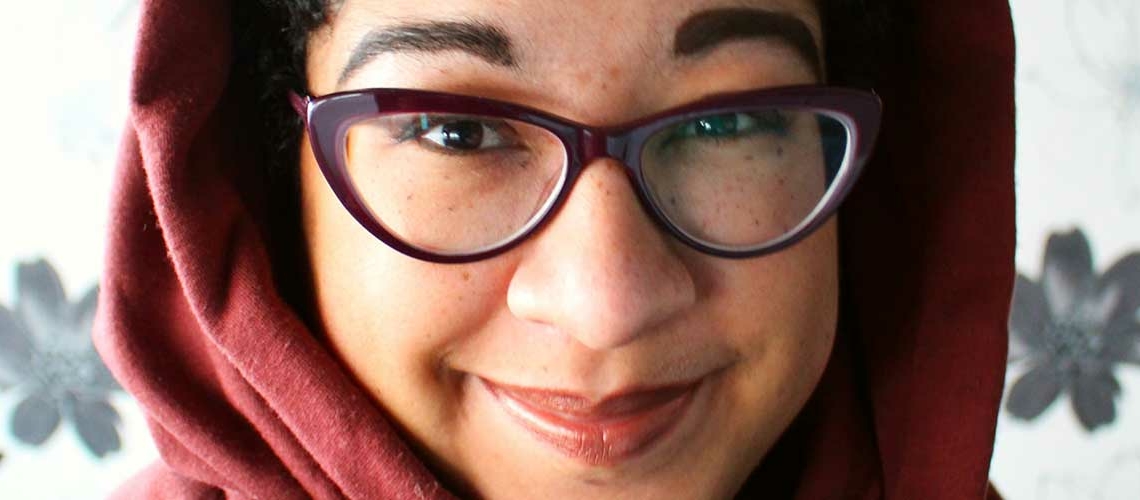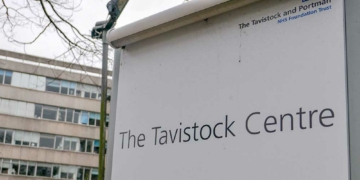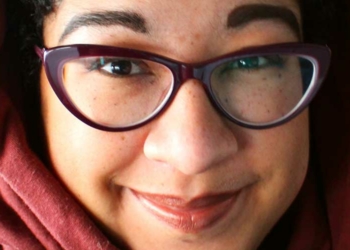2022 just might be the time I manage to keep a New Year’s Resolution. This year I’m reading books by lesbian and bisexual women. I won’t say “only”, because that implies a limitation. In reality, I can imagine few things more freeing and delicious than a year spent dining on Sapphic stories.
The idea came over the holiday season. I was watching Single All the Way – a cute gay Christmas romcom – with my grandmother. It was, as Craig Revel-Horwood might say, “Fab-U-Lous, darling.” And yet. Five minutes in, I considered switching the film off. Neither the messy love lives nor references to gay culture are what could accurately be described as my Catholic grandmother’s cup of tea.
I was on the cusp of chickening out and suggesting Love, Actually instead when she laughed. Really laughed. Not her polite laugh, but the genuine one, filled with surprise and delight. And that was when I realised: in my panicking, I was doing both of us a disservice.
As a lesbian, I don’t see myself in the endless stream of straight stories venerated as classics. They don’t reflect my life, culture, or community. And yet I watch. Partly because straight culture is inescapable. But also because characters’ lives don’t need to mirror our own for their stories to entertain and transport us. I’m not a fifty-something alcoholic horse-human hybrid, but will forever feel kinship with BoJack Horseman. And if I can connect with a jaded millionaire horse-person who has a brand of heroin named after him, why shouldn’t my grandmother connect with a chaotic-but-wholesome twink?
I began to think quite seriously about why, in spite of all the joy they bring, I’d been assuming gay stories couldn’t hold universal appeal. What am I holding on to, that some part of me still classes gay media as lesser or niche? The obvious answer is internalised homophobia. And if there’s one thing Grey’s Anatomy (that pinnacle of straight television) has taught me, it’s this: when you hear hoofbeats, think horses, not zebras.
This revelation was surprising. And uncomfortable. Having founded an international lesbian book group and cherished every one of the books we’ve read together, I – perhaps naïvely – thought myself past homophobic hang-ups.
So many authors apply incredible insight when they write about women navigating patriarchy – yet still can’t craft stories undefined by heterosexual norms.
In the last few years, as I’ve engaged wholeheartedly with lesbian culture and feminist politics, my tastes have changed. Books that once wowed me because a male author wrote a compelling, three-dimensional female character now feel like the bare minimum. And they’re significantly less interesting to me than any female author’s take on the experiences surrounding womanhood.
I used to be drawn primarily to literary fiction – stories about smart, spiky, and invariably straight heroines going through dysfunction. But now I find those books frustrating. So many authors apply incredible insight when they write about women navigating patriarchy – yet still can’t craft stories undefined by heterosexual norms.
For decades lesbian and bisexual writers have imagined other possibilities for female characters. Octavia Butler redefined science-fiction and fantasy to build worlds so far removed from our heterosexist blueprint. With her debut novel Stir-Fry, Emma Donoghue questioned possessiveness in romantic relationships and dared to ask what’s possible when we invest the same importance in friendship. In her Gilda Stories, Jewelle Gomez strips away the violence that defined vampire lore; created a heroine whose unlife’s work is sustaining a community of equals.
These ideas, and the interwoven politics, are thrilling. They entertain every bit as much as they challenge. If any books have the power to loose the remaining threads of internalised homophobia knotted inside my mind, it’s lesbian ones. And I’m excited to find out how else this year of Sapphic reading will change me.
Admittedly, my resolve may waver if J.K. Rowling drops a new Cormoran Strike novel this year. I want to know if A) Matthew dies B) Robin and Cormoran finally get together. But the only exceptions I’m allowing for are books reviewed in a professional capacity (like most writers, I’m not raking in that Rowling money) and books read towards the goal of self-study. While I would love to reach the required reading age for understanding French lesbian fiction, I’m still womanfully struggling through the translated Harry Potter series. C’est la vie.
You can’t rush growth. But you can nurture it. If we stop doing the work, we stop developing. We stagnate. We never get to find out who we could have been, had we but dared to try. Yes, it’s humbling to acknowledge any internalised prejudice or bias. But it’s also liberating; an opportunity to blossom, that we might better serve ourselves and – more importantly – our communities. Since books build empathy and imagination, they are the perfect place to start.
Claire Heuchan is an author, essayist, and Black radical feminist. She writes the award-winning blog, Sister Outrider.
























Comments
No comments yet, be the first to leave a comment.